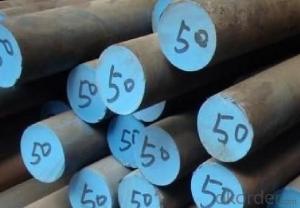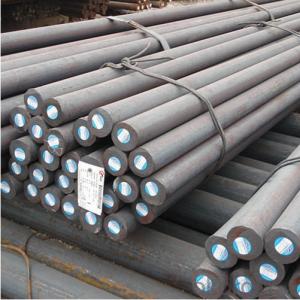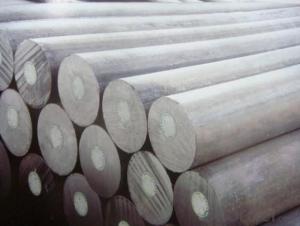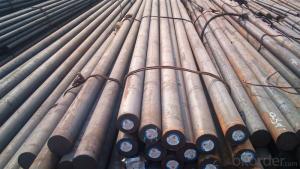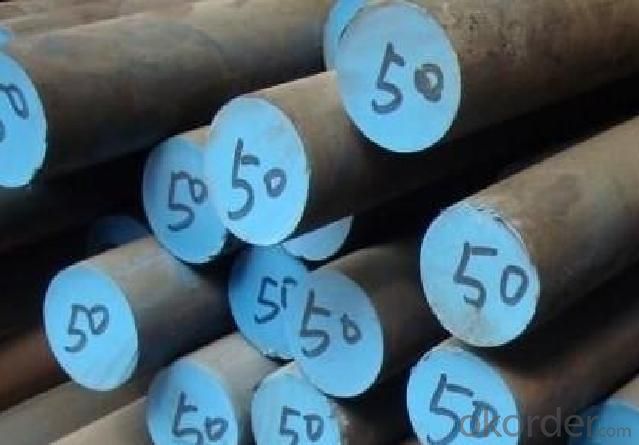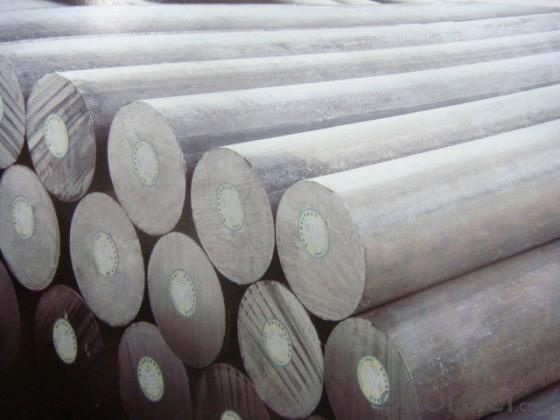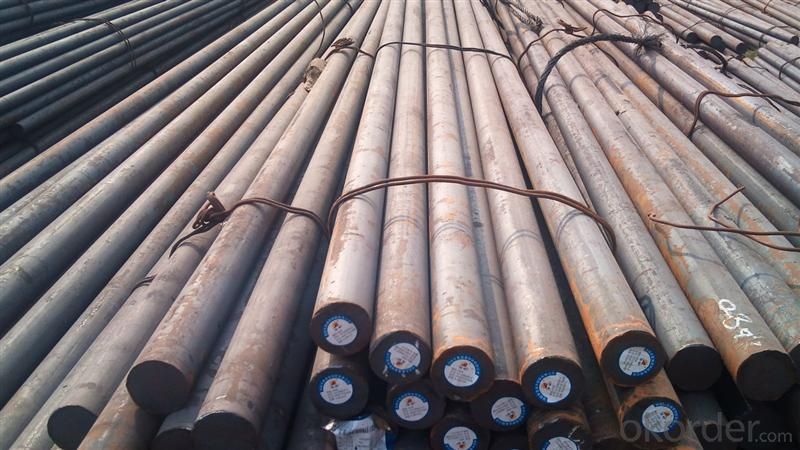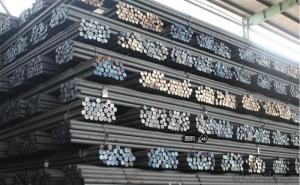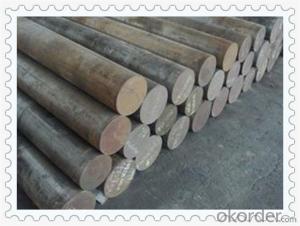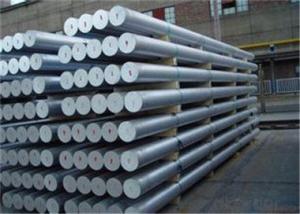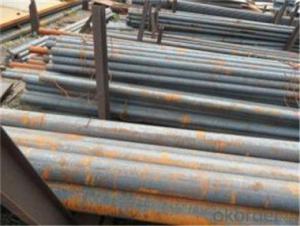SCM440 Alloy Steel Round Bars Hot Forged Bar
- Loading Port:
- Tianjin
- Payment Terms:
- TT OR LC
- Min Order Qty:
- 25 m.t.
- Supply Capability:
- 50000 m.t./month
OKorder Service Pledge
OKorder Financial Service
You Might Also Like
Specification
SCM440 Alloy Steel Round Bars Hot Forged Bar
Product Description:
1. Sizes: Diameter: 16mm-300mm; Length: 6m, 9m, 12m
2. Grade: 42CrMo, 4140,42CrMov,SCM440
3. Invoicing on theoretical weight or actual weight as customer’s request
4. Shape: Round bar, solid bar of steel with circular section
5. Technique: Hot rolled, forged, cold rolled
Specification:
Material | SCM440 | Round bar | Dia(mm) | 16-600 |
Process | EAF + LF + VD + Forged + Heat Treatment (optional) | Length (mm) | Max 12000 | |
Heat treatment | Normalized / Annealed / Quenched / tempered | Flat bar | Thickness(mm) | 8-500 |
Delivery condition | Hot forged +Rough machined (black surface after Q/T)+ Turned (optional) | Width(mm) | 70-200 | |
Test | Ultrasonic test according to SEP 1921-84 D/d | Length (mm) | Max 12000 |
Chemical Composition:
C | Si | Mn | Cr | Ni | Cu |
0.38~0.45 | 0.17~0.37 | 0.50~0.80 | 0.9-1.2 | ≤0.030 | ≤0.030 |
Packing and Delivery:
Packing in bundle with steel strips and shipped by break bulk vessel or container (depend on target market and different ports)
Delivery Detail: Approx.45 days
Usage and Applications:
1. SCM440 Alloy Steel Round Bars Hot Forged Bar is used in a large number of architectural and engineering structures. Or it can be used in construction of plants for the production of steel house frames, high-voltage transmission towers, bridges, vehicles, boilers, containers, ships, etc.
2. And we can use this kind of product on the performance of the mechanical parts if the demand is not very high.
3. Some especial material steel round bar can be used for main shaft of steamer, hummer shank, with big section and supper force.
Product Show:
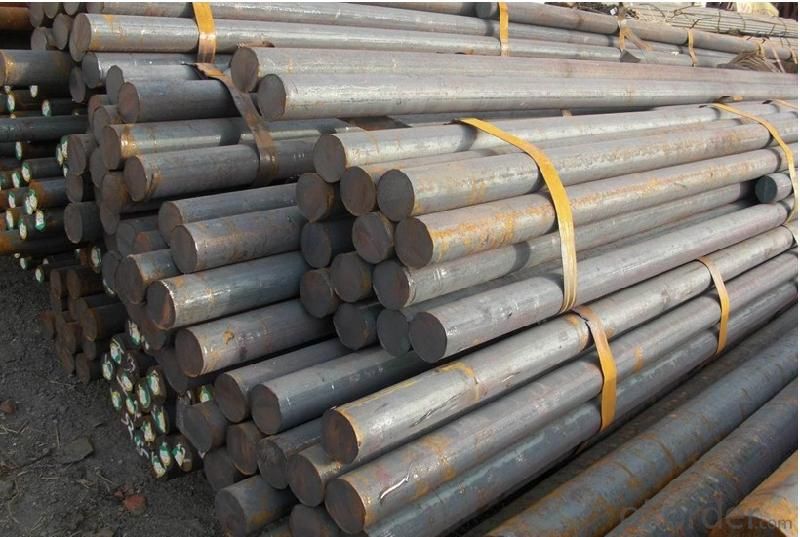
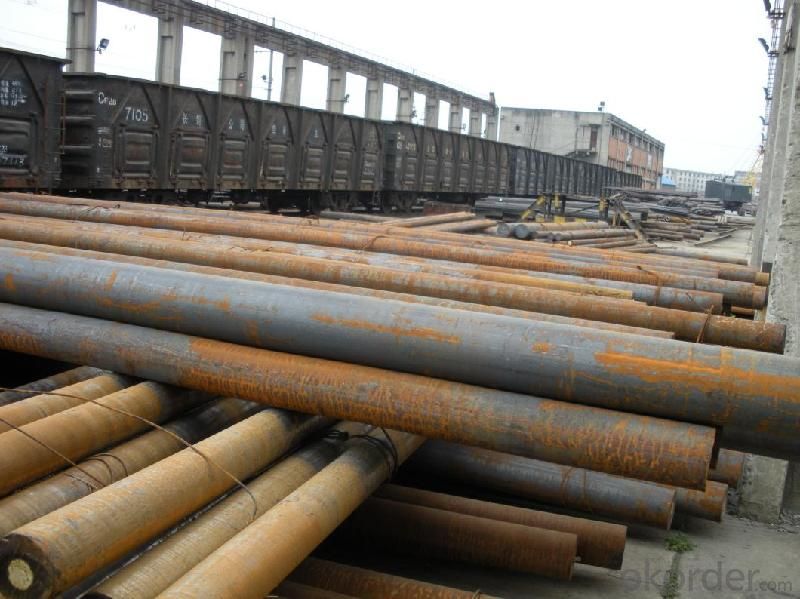
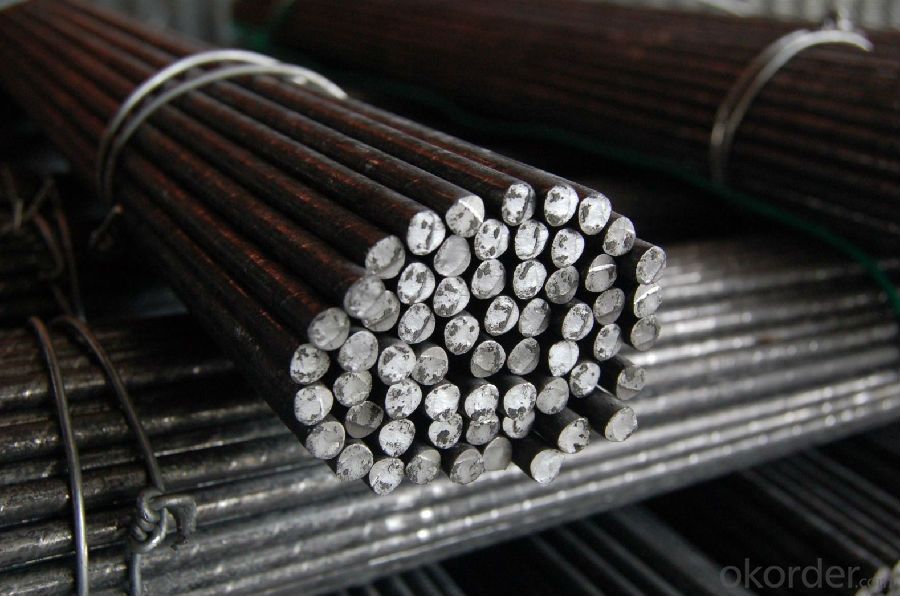
- Q: What are the most common alloys used in special steel?
- The most common alloys used in special steel include stainless steel, tool steel, and high-speed steel.
- Q: How does special steel resist oxidation at high temperatures?
- Due to the presence of specific alloying elements and a carefully controlled manufacturing process, special steel is able to resist oxidation at high temperatures. When exposed to oxygen in the air, alloying elements like chromium, nickel, and aluminum form a protective oxide layer on the steel's surface. This layer acts as a barrier, preventing further oxidation. Of these alloying elements, chromium is particularly effective in forming a stable and dense chromium oxide layer. This layer serves as a self-healing mechanism, meaning that if it becomes damaged or scratched, it will quickly regenerate and continue to protect the steel from oxidation. The manufacturing process of special steel involves precise control of composition and heat treatment. This ensures that the steel has a fine and uniform microstructure, minimizing the presence of impurities or defects that could speed up oxidation. Moreover, the steel often undergoes various heat treatments, such as annealing or quenching, which further enhance its resistance to oxidation. In conclusion, the combination of alloying elements, controlled composition, and specific manufacturing processes allow special steel to withstand oxidation at high temperatures. This makes it an ideal choice for applications in industries like aerospace, power generation, and petrochemical.
- Q: How does special steel contribute to the power generation machinery industry?
- Special steel plays a crucial role in the power generation machinery industry by contributing to the efficiency, reliability, and durability of power generation equipment. Firstly, special steel possesses exceptional mechanical properties, such as high strength, toughness, and temperature resistance. These properties make it ideal for manufacturing key components of power generation machinery, such as turbines, generators, and boilers. The superior strength and toughness of special steel enable these components to withstand high pressures, extreme temperatures, and harsh operating conditions, ensuring the safe and efficient operation of power plants. Moreover, special steel alloys can be specifically designed to resist corrosion, erosion, and wear, which are common challenges faced by power generation equipment. Corrosion can be caused by the chemical reactions between metals and the environment, while erosion and wear result from the high-speed flow of steam, water, or gases. By utilizing corrosion-resistant and wear-resistant special steel, power generation machinery can operate for longer periods without significant degradation, reducing maintenance requirements and downtime. Another significant contribution of special steel to the power generation machinery industry is its ability to retain magnetic properties at elevated temperatures. This property is crucial for electrical generators, as it ensures optimal performance and efficiency. Special steel with excellent magnetic properties enables generators to produce electricity with minimal energy losses due to heat, resulting in higher power output and reduced energy consumption. Furthermore, the design flexibility of special steel allows for the production of customized components, tailored to the specific requirements of different power generation technologies. For instance, in nuclear power plants, special steel alloys with high resistance to radiation and neutron embrittlement are used for the construction of reactor pressure vessels and other critical components. In renewable energy systems like wind turbines, special steel with superior fatigue resistance is utilized to withstand the cyclic loading experienced by turbine blades. In summary, special steel significantly contributes to the power generation machinery industry by enhancing the efficiency, reliability, and durability of power generation equipment. Its exceptional mechanical properties, corrosion resistance, wear resistance, magnetic properties, and design flexibility make it indispensable for manufacturing components that can withstand extreme conditions and ensure the continuous and efficient generation of electricity.
- Q: What are the properties of corrosion-resistant stainless steel?
- Corrosion-resistant stainless steel possesses a unique combination of properties that make it highly resistant to corrosion. These properties include a high level of chromium content, which forms a protective oxide layer on the surface of the steel, preventing further corrosion. Additionally, it has low carbon content, which further enhances its corrosion resistance. The presence of other alloying elements like nickel and molybdenum also contributes to its resistance against corrosion in various environments, making it suitable for a wide range of applications.
- Q: Can special steel be used in the renewable energy industry?
- Yes, special steel can be used in the renewable energy industry. Special steel alloys are often used in the construction of wind turbines, solar panels, and hydroelectric power plants due to their high strength, corrosion resistance, and durability. These properties make special steel an ideal material for various components, such as turbine blades, tower structures, frames, and support systems, ensuring the reliability and longevity of renewable energy infrastructure.
- Q: What are the challenges in forming special steel?
- Several challenges arise when forming special steel due to its unique characteristics and properties. Some of the primary difficulties include: 1. The high melting point of special steels necessitates the use of specialized equipment and processes for heating and shaping the material. This can result in increased energy consumption and costs. 2. Special steels typically contain various alloyed elements to enhance their properties, such as strength, hardness, and corrosion resistance. However, controlling the alloy composition precisely can be challenging, as even minor variations can have a significant impact on the material's properties. 3. Certain special steels, such as tool steels, have a high carbon content to improve hardness and wear resistance. Unfortunately, this high carbon content makes the material more susceptible to cracking during forming processes like forging or rolling. Great care must be taken to prevent cracks and achieve the desired shape. 4. Special steels often require specific heat treatment processes, like quenching and tempering, to achieve the desired mechanical properties. These processes can be complex and require precise control of temperature, time, and cooling rates. Improper heat treatment can result in poor material performance or even structural failure. 5. Achieving the necessary surface finish and dimensional accuracy is crucial in applications where special steels are used, such as the aerospace or automotive industry. This can be challenging during forming operations, necessitating advanced tooling and precision machining techniques. 6. Forming special steels may require specialized equipment and expertise, such as high-pressure hydraulic presses, induction heating equipment, or vacuum furnaces. These specialized tools and processes add complexity and costs to the manufacturing process. Despite these challenges, forming special steels is vital in various industries that require their unique properties. Manufacturers continually invest in research and development to overcome these challenges and enhance the forming processes of special steels.
- Q: How does special steel contribute to reducing greenhouse gas emissions?
- Special steel can contribute to reducing greenhouse gas emissions in several ways. Firstly, it can be used in the manufacturing of more energy-efficient vehicles, which emit lower levels of carbon dioxide during operation. Additionally, special steel can be utilized in the production of renewable energy infrastructure, such as wind turbines and solar panels, which helps reduce reliance on fossil fuels. Furthermore, special steel is often employed in the construction of energy-efficient buildings, which require less energy for heating and cooling, thus lowering overall emissions. Overall, the use of special steel in various applications plays a significant role in the reduction of greenhouse gas emissions and the transition to a more sustainable future.
- Q: Can special steel be used in the manufacturing of cutting-edge technology products?
- Yes, special steel can definitely be used in the manufacturing of cutting-edge technology products. Special steel is known for its high strength, durability, and resistance to corrosion, making it an ideal material for various applications in the technology industry. For example, in the production of smartphones, special steel can be used for the casing, providing excellent protection against impact and scratches while maintaining a sleek and modern design. Additionally, special steel can be utilized in the manufacturing of precision components for advanced machinery, such as robotics or medical devices, where high strength and reliability are crucial. Overall, special steel offers numerous advantages that make it a suitable choice for the production of cutting-edge technology products.
- Q: Can special steel be used in the production of fasteners?
- Yes, special steel can be used in the production of fasteners. Special steel, such as alloy steel or stainless steel, offers enhanced strength, corrosion resistance, and durability, making it suitable for various fastening applications. Its unique properties ensure reliable and long-lasting connections in industries like automotive, construction, and aerospace.
- Q: What are the challenges in surface treating special steel?
- Some of the challenges in surface treating special steel include achieving uniform and consistent coatings, ensuring adhesion of the coating to the steel substrate, overcoming the high hardness of the steel, preventing distortion or warping during the treatment process, and managing the potential for thermal degradation or oxidation. Additionally, the presence of unique alloying elements in special steel may require specialized treatment techniques to achieve the desired surface properties.
Send your message to us
SCM440 Alloy Steel Round Bars Hot Forged Bar
- Loading Port:
- Tianjin
- Payment Terms:
- TT OR LC
- Min Order Qty:
- 25 m.t.
- Supply Capability:
- 50000 m.t./month
OKorder Service Pledge
OKorder Financial Service
Similar products
Hot products
Hot Searches
Related keywords
